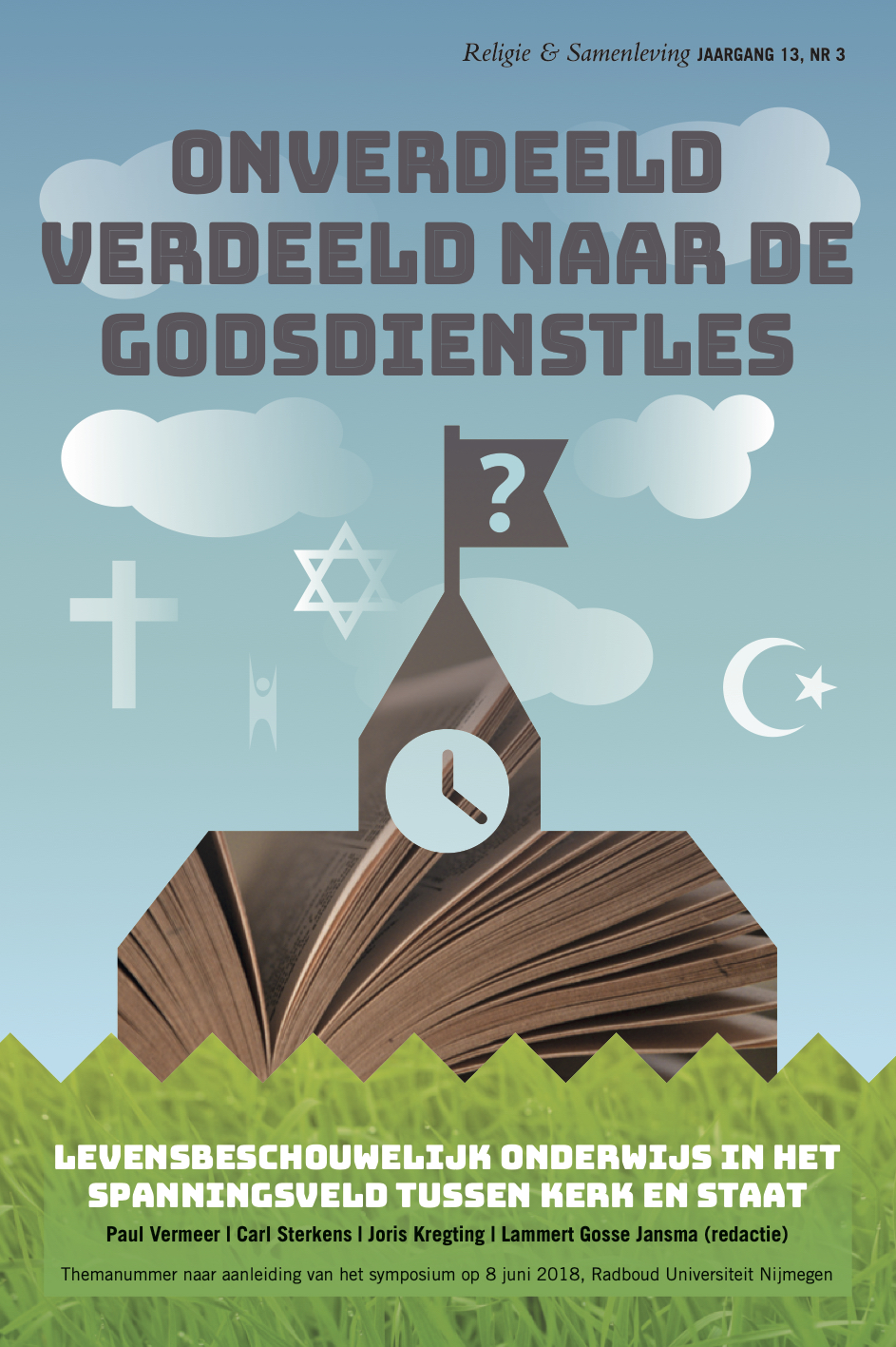Geloofsgoed en cultuurgoed
Kenmerken van levensbeschouwelijke vorming ten behoeve van de persoonsvorming van leerlingen in het protestants-christelijk onderwijs
DOI:
https://doi.org/10.54195/RS.11837Samenvatting
There is growing attention to ‘personhood formation’ as an educational domain. In our contribution we describe, on the basis of several empirical studies, how religious education at Protestant-Christian schools is given shape nowadays and how it is related to personhood formation. In general three types of Protestant-Christian education can be distinguished: Tradition schools, Diversity schools and Meaning oriented schools. The types differ in, amongst other things, the way religious education is given shape. Also the relation with personhood formation and interpretations given to this concept differ. Our findings make clear that in Protestant-Christian education there is ample attention to personhood formation, in different capacities. Religious education is mainly connected to personhood formation in terms of ‘personalisation’ and ‘subjectification’. Only diversity schools mainly emphasize personhood formation as qualification. At tradition schools personhood formation is also (so not only) linked to religious upbringing or socialization in the Christian tradition.




